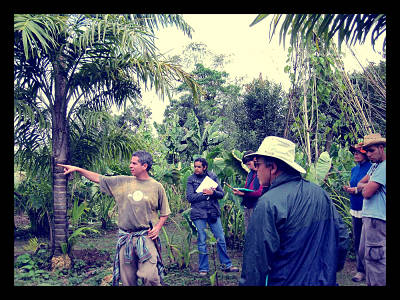FAO Perennial Crops for Food Security

The UN Food and Agriculture Organization (FAO) will hold a workshop on Perennial Crops for Food Security later this month to highlight the development of a perennial wheat variety by NSW Department of Primary Industries (DPI), CSIRO and Charles Sturt University.
DPI was recently successful in growing a perennial wheat variety in the Cowra district in Australia. Perennial crops offer significant benefits in sustainability that support efforts to address food security. The wheat variety will produce for three consecutive years compared to other wheat varieties produce only one year. DPI is also pursuing research in inter-cropping of perennials in Cowra. Their work involves planting perennial grain and legumes side by side to boost soil nutrition.
In addition to discussing developing new perennial crops the workshop will focus on increasing perennial crop yields and integrating these crops in production cycles. Perennial crops are more sustainable as they are able to be harvested without killing the plant. This ensures that the plant continues to grow and produce. The perennial crops are also heartier and able to survive temperature changes and extremes. However, annual plants have received the vast amount of technological attention (i.e. corn).
However, there are several barriers to encouraging farmers to adopt these crops. In regions where land tenure or ownership rights are tenuous, investing in perennials crops does not appeal to farmers who do not need investment security of perennials. Many of these crops take several years to establish and produce a crop and it can be difficult to convince farmers that this investment is worth the wait. The specialized equipment and the new techniques required do not make conversion any easier and often involve a high price tag.
The FAO expert workshop will include speakers from several countries. These experts will discuss trends and the status of various perennial crop developments. The gaps and opportunities for integrating these crops in the production chain will also be addressed by presenters. Speakers and participants also come from diverse public and private backgrounds.
Perennial crops will be a long term solution for food security, as demonstrated by the various barriers that must be overcome. However, the many benefits that they present make it an important endeavor. If food security is to be achieved and 9 billion people fed by 2050, scientists and international development specialists must pursue a variety of options.
– Callie D. Coleman
Sources: Cowra Guardian, FAO, Perennial Solutions
Photo: Perennial Solutions
